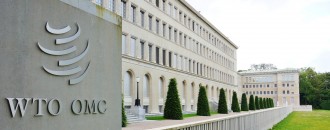
US Govt welcomes Infosys’ decision to hire 10,000 Americans
The Dollar Business Bureau
The US government on Wednesday welcomed the move by IT major Infosys to employ 10,000 American workers in the coming two years, by stating that it was an outcome of the Trump administration’s “pro-growth economic agenda.”
On Tuesday, Infosys had announced that it will set up 4 new centres in the US and hire 10,000 Americans in the coming two years as part of the company’s efforts to lessen the impact of the curbs on H1-B visa.
Out of the four, the first innovation centre for newer technologies such as machine learning and artificial intelligence (AI) will be opened in August in the Midwestern US state of Indiana, also the home of Vice-President Mike Pence.
The announcement by the IT giant is termed as a political victory by the White House for the Trump administration, which on various occasions has accused the outsourcing companies of taking away the jobs ‘unfairly’ from Americans, the White House said in a statement to The Washington Post.
“We’re glad to see companies like Infosys see opportunity in the American economy again,” said White House spokesman Ninio Fetalvo in a statement.
The US government had accused Indian firms Infosys and Tata Consultancy Services (TCS), of cornering the major share of H-1B visas by placing additional tickets in the visa lottery draw system. The US, each year, gives 65,000 H-1B work visas whereas another 20,000 are for workers having advanced degrees.
The H-1B, a visa for non-immigrant workers, gives provision to the US firms to hire foreign nationals in specialised occupations that merit technical or theoretical expertise in specialty fields. Indian tech firms have to depend on this visa to employ thousands of employees every year for their operations in the US.
To reform H-1B visa programme was one of the key election promises of President Donald Trump.
Last month, Trump signed an executive order to seek changes in the H-1B visa regime.
The White House said that with the executive order it will become harder for technology companies to replace US nationals with cheaper foreign workers, and will also strengthen regulations barring international contractors to bid on the government projects.






 to success.
to success.